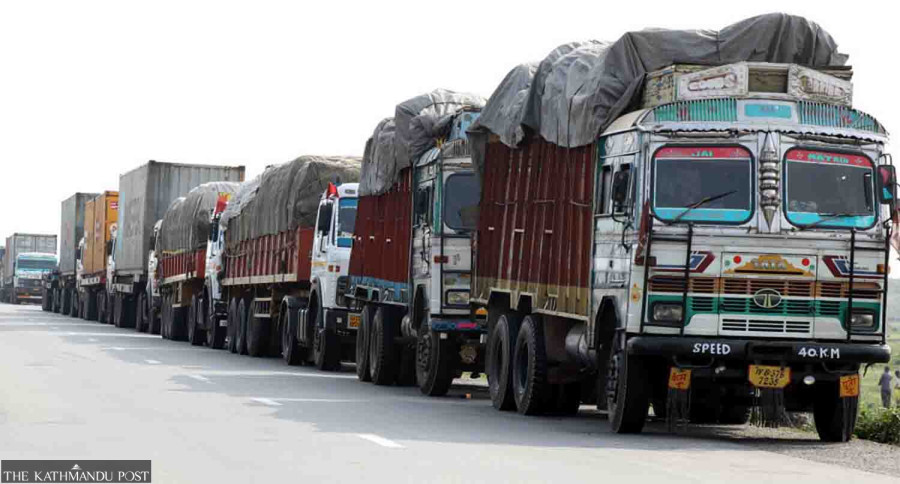Money
Nepal implements its first trade logistics policy
The policy mainly focuses on reducing costs and managing trade and the supply chain.
Post Report
The government has introduced the Trade Logistics Policy to enhance the competitive capacity of a trade by minimising the cost through a modern, capable and integrated logistics system.
The Ministry of Industry, Commerce and Supplies said that the policy, introduced in Nepal for the first time, will reduce the cost of trade and production.
It would improve the distribution and storage of goods and services.
The government will use different strategies like developing targeted and integrated trade logistics infrastructure, strengthening the supply channel management related to the trading system and promoting the governance in the trade logistics system.
Govinda Bahadur Karki, joint secretary of the Ministry of Industry and Commerce, said that the policy came into effect after it was approved by the cabinet recently.
The policy mainly focuses on reducing the cost and managing the trade and the supply chain, Karki said.
Nepal’s position in the trade logistics sector is comparatively weak.
In the Logistics Performance Index published by World Bank, Nepal ranked in 121st position out of a total of 167 countries.
Nepal lacks insufficient and qualitative trade infrastructure and service and the lack of coordination among inter-agencies and inter-countries has increased the national and international trade costs, reducing competitiveness.
“Trade logistics policy is very important for a landlocked country like Nepal whose trade cost is high,” said Purushottam Ojha, former commerce secretary.
“A proper trade logistics policy is required to reduce the trade cost,” he said, adding that there is a need for effective implementation of the policy.
“When it comes to trade logistics, Nepal needs to coordinate with neighbouring countries like India, China, and Bangladesh, which can be challenging as well in the implementation part,” he said.
According to the ministry, micro, small and medium enterprises and entrepreneurs' reach will be enhanced in the operation and utilisation of trade logistics. Modern technology will be used to strengthen the supply channel.
The government has also taken a strategy to assure the participation of stakeholders in the implementation of the trade logistics policy, according to Karki.
The cost of exporting goods through airways will be minimised to make it competitive while services related to trading logistics like postal service, insurance, banking and regulator service will be made trade-friendly, according to the new policy.
According to the policy, the board of trade, the advisory board under the Ministry of Industry, Commerce and Supplies, which raises important issues, will suggest the programme to make trade logistics infrastructure and service more efficient.
“The board of trade is not so functional. They cannot hold a meeting once in two years,” said Ojha.
The required resources to implement the policy need to be included by related bodies in the annual budget and programme.
The policy aims to promote private and external investment.




 9.6°C Kathmandu
9.6°C Kathmandu














